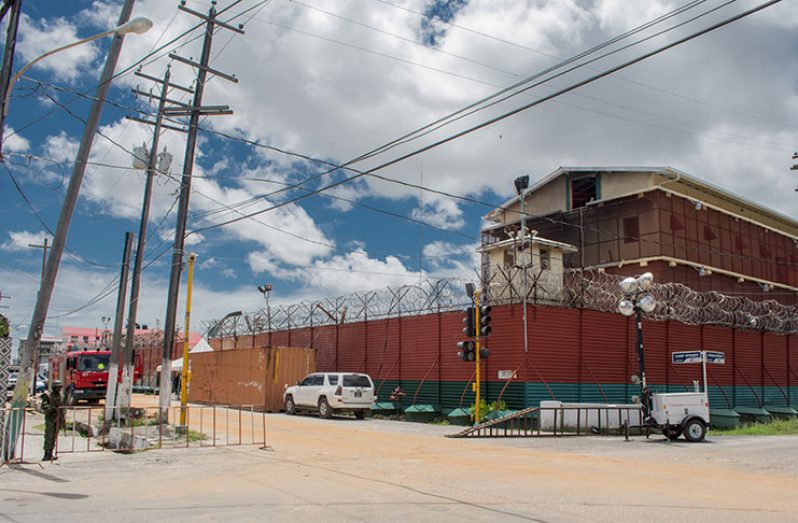OVER the past 10 years, an average of seven prisoners per year has been released by the Parole Board, according to the 2016 findings of the Commission of Inquiry (CoI) into the Camp Street Prison disturbance and deaths.
A total of 17 inmates were killed and several others injured throughout the Camp Street jail riots during March 2-4, 2016.
According to the report released from Parliament Thursday , even the Public Health Ministry which has the power to demand the release prisoners on health grounds, offer minimal support despite a sizeable component of mentally ill, HIV-positive and drug substance addicted prisoners being incarcerated.
The CoI report noted that the Guyana Prison Service (GPS) revealed that 60 per cent of prisoners live in indescribably harsh conditions although they have not been found guilty of any crime.
“Prisoners spend most of their day in spaces which are occupied by three, four and five times more people than they intended to accommodate. Roaches, centipede, lice and rats flourish, blocked toilet areas in cells overflow,” the CoI report stated.
These remand prisoners; the report noted are the responsibility of the judiciary and not the Prison Service, which has no discretion to refuse to take them.
Additionally, the commission learnt that other agencies with statutory responsibilities to support the prison system failed even as lawyers are rarely seen in the prison assisting remand prisoner with a speedy trial.
“On the other hand, recidivism has apparently increased by over 100 per cent indicating not only a waste of taxpayers’ dollars but also the need for a more comprehensive and structured partnership within the wider justice system,” the findings stated.
It costs $485,000 to maintain one prisoner per year or $1,329 a day. The Georgetown Prison housed 979 at the time of the prison riot; this was 84 per cent over the maximum capacity it was designed to hold.
The custodial staff to manage the entire prison at that time was 38 warders.
“Overcrowding is the result of weakness in the administration of justice which remains unaddressed by the judiciary and magistracy… the judiciary has not taken steps or has not publicised steps it may have taken with respect to addressing the severity of back-log of remand cases,” the CoI stressed.
Meanwhile, the report stated that the prisoners that set fires and resisted efforts by the GPS to extinguish the flames created a condition where it was not possible to unlock cell doors.
“Unpalatable as it is to assign blame to the dead, some of them at least, along with a number of survivors must be assigned the immediate responsibility for the deaths that occurred,” the CoI report stated.



.jpg)








